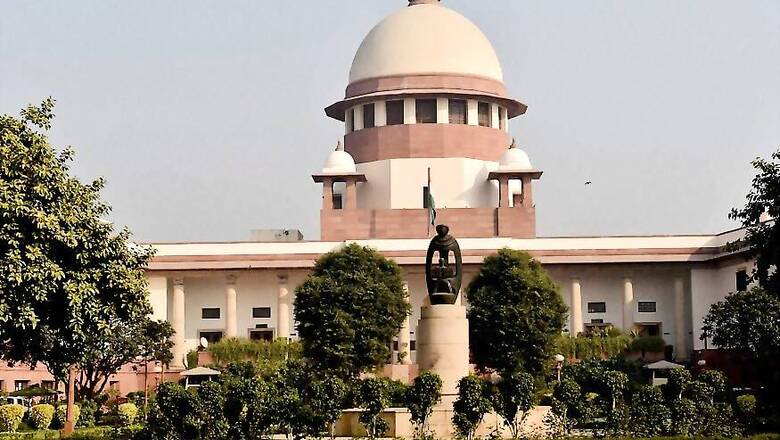
views
New Delhi: The Supreme Court has said that Karnataka has "no right" over the historic Beaulieu Estate in the heart of the Bengaluru city as it was purchased nearly 117 years ago by the Dewan of Mysore on behalf of the First Princess.
The estate, measuring over 24 acres, is a heritage property located in Bengaluru's prime Palace Road and now houses a hotel and a number of commercial buildings and residences.
The apex court restored the order passed by the Karnataka High Court's single judge quashing the state government's order initiating proceedings under Section 67 of the Karnataka Land Revenue Act, 1964 against the occupants of the land.
A bench of Justices Madan B Lokur and Deepak Gupta held that after over 100 years of the execution of the original conveyance deed, and after the state acquiring many portions of land out of this estate, "we cannot permit the state to urge that the original conveyance deed is fraudulent or that the subsequent transfers are all collusive and, as such, void".
"It is held that the 'Beaulieu' estate was purchased by the Dewan of Mysore on behalf of the First Princess and the consideration was paid from the personal funds of the First Princess. Therefore, the state of Karnataka has no right over the property," the bench said.
The top court said the allegations of fraud levelled by the state could not be believed, especially in view of the "contemporaneous evidence and subsequent acquisitions" out of the estate, both by the Maharaja of Mysore before Independence and by the state of Mysore after Independence.
"More than 20 acres of the total 24 acres and 12 gunthas were acquired by the Government of Mysore both prior to and after the independence of the country.
"Nobody raised any objection. If the land belonged to the State, why would the state acquire its own property? This question has not been answered," the court said.
The proceedings under Section 67 of the Act was initiated by the state government after a complaint by the secretary of the Karnataka Public Service Commission in May 2004 alleging that 20 acres and 9 gunthas of land, out of the total 24 acres and 12 gunthas, was fraudulently acquired and it would not confer any rights upon the owners.
"Prior to the conveyance deed being executed on August 25, 1990, the Dewan of Mysore had put up a note to His Highness the Maharaja of Mysore that the estate property is being bought for the First Princess and the payment was to be made out of her personal funds.
"He had also requested the Maharaja to apprise the First Princess about the facts and then obtain her approval. It is not believable that, in the year 1900, the Maharaja of Mysore and his Dewan colluded to commit fraud on the state of Mysore with a view to favour the First Princess," the bench said.
The apex court observed that a fraud must be pleaded and proved and it cannot be presumed.
"Therefore, we are of the view that the single judge was justified in holding that the proceedings under Section 67 were without jurisdiction. We are also of the view that the proceedings are beyond the period of limitation," it said.




















Comments
0 comment